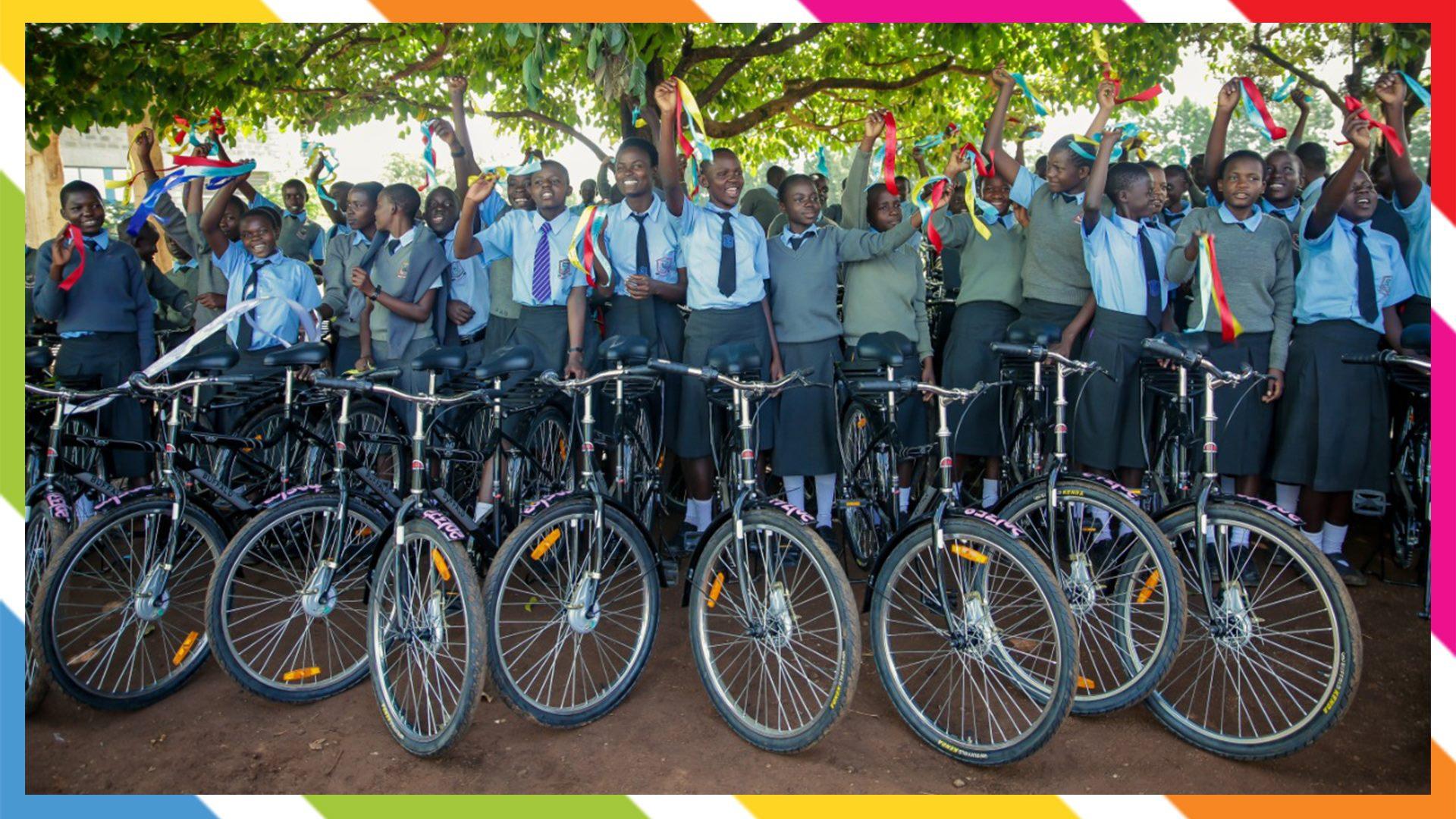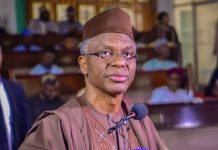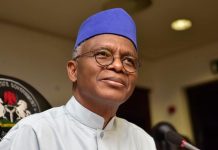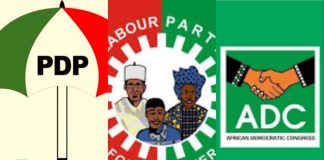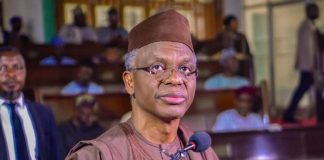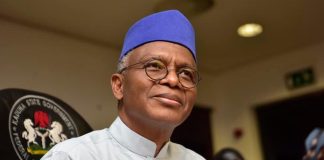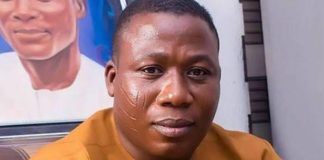🌿 Ruzu Non-Alcoholic Herbal Bitters
Ruzu Non-Alcoholic Herbal Bitters is a natural health supplement specially formulated to:
- ✅ Promote general wellness
- ✅ Detoxify the body
- ✅ Support the treatment of various ailments
Made from a powerful blend of 100% organic and medicinal herbs, Ruzu is completely alcohol-free, making it ideal for:
- 👪 All age groups
- 🌱 Health-conscious individuals
- 🌿 Anyone seeking non-alcoholic herbal remedies
Whether you're looking to boost your vitality, cleanse your system, or support healing the natural way, Ruzu Bitters offers a trusted herbal solution.
In this interview with OLORUNDARE ENIMOLA, road safety advocate and GRA Empowerment Foundation founder/president Mr. Gabriel Rotimi Aroge described how his organization is using cycling as a workable solution to remove the cost of transportation to schools for impoverished public school students through an initiative he called “Cycle2School Plus (C2S+).” They intend to donate 1000 bicycles during the pilot project’s launch in September and October. Excerpts
Please tell us about yourself, sir.
As the creator of the GRA Empowerment Foundation, my name is Gabriel Rotimi Aroge. In addition to activism, I support the Sustainable Development Goals (SDGs), with a particular emphasis on non-motorized transportation and road safety.
As a social entrepreneur and design thinker, I have a strong interest in innovative solutions that empower marginalized youth and have a positive impact on the community.
Describe your advocacy efforts and the factors that motivated them.
We do multifaceted job. As a social enterprise developer and product designer, my area of expertise is utilizing cycling as a workable way to improve educational access for underprivileged Nigerian public school students. Our project, Cycle2School Plus (C2S+), will offer free, secure transportation to children, particularly girls, who are hampered by lengthy and hazardous walks to school. Its pilot phase is scheduled to begin in September or October.
A terrible accident at the Agric Bus Stop in Ikorodu on October 21, 2006, which claimed the lives of over 100 persons, gave rise to this advocacy.
The sole survivor, my wife, was in the hospital for a year. My goal was inspired by this profound personal loss. After realizing the importance of the UN Decade of Action for Road Safety, I made the decision to support it through grassroots empowerment and innovation.
The protection and improvement of cycling and walking is at the forefront of our development because our target beneficiaries are members of the vulnerable and endangered road user groups.
Because of Nigeria’s low level of road safety instruction, cyclists and pedestrians are frequently the targets of hostile, unpleasant, and inexperienced drivers.
In order to address the low level of road user illiteracy in Nigeria, we think that we can be “the change” using a platform like Cycle 2 School Plus.
With C2S+, we are democratizing, decentralizing, and enterpriseizing road safety, which is what we believe is necessary.
Do your partners and audience understand what you’re saying?
Yes, but there’s still opportunity for improvement. SDGs 1, 3, 4, 5, 8, 11, 13, 16, and 17 are in line with our vision. Through a single scalable platform, we are tackling poverty, poor health and well-being, high-quality education, gender equality, decent work and economic growth, sustainable cities, climate action, peace justice, and strong institutions and partnerships.
The biggest problem we are now facing is reorienting Nigerian drivers; funding for a program aimed at changing their behavior is desperately needed to assist them recognize the efforts of law enforcement.
Our project is expected to be accepted 70% of the time; the remaining 30% will depend on how effectively we present cycling as a revolutionary alternative. Leaders in the business sector and policymakers need to realize that this is a need, not a luxury.
What noteworthy accomplishments have you made so far?
hosted the executive director of ReCycle Bikes in Africa at the Sussex Innovation Center in the United Kingdom.
arranged a working visit to the Recycle warehouse located in Colchester, UK. arranged the Executive Director of ReCycle’s first-ever visit to Nigeria in February 2025 and collaborated with the Federal Road Safety Corps (FRSC) to host the 8th UN Global Road Safety Week.
Together with FRSC and other partners, we commemorated World Bicycle Day in 2025. appointed brand advocates, such as Afitz Bakare, a former national cycling champion.
Dr. Charles O’Tudor, a brand strategist, was brought on board as a mentor and fundraiser.
We have already had a contribution of 1,000 bicycles and international assistance to bring our first container of 500 bikes into Nigeria; all we need now is local support to finish the program’s implementation plan.
How are your operations funded?
Volunteers and partners who have years of pro bono experience are our greatest asset. The complete cost of sending more than 500 bikes to Nigeria was paid for by ReCycle UK.
Over £10k was spent on a company incubation program sponsored by the Sussex Innovation Center. I was trained as a volunteer by Brighton Bike Hub, and they currently provide technical assistance for our operations.
If we were to pay for all of these out of pocket, the price would be very high. Our main partner, Re-Cycle Bike to Africa, has provided 1,000 bikes to support the start of our pilot program in Lagos, thanks to the Brighton Bike Hub, where I first helped as a mechanic apprentice during my MSc program at the University of Sussex.
To provide support, these international partners didn’t need to know who I was or where I was from. They have been to Nigeria to confirm our claim, and they are going to push even harder than they have in other African nations because this cause is so admirable.
But without Nigerian partners, we are unable to maintain this momentum. We are urging banks, insurance companies, fast-moving consumer goods, telecommunications companies, and charitable institutions to participate in this momentous endeavor.
When students must spend up to N90,000 for transportation each year, education isn’t free. We’ll remove this load with C2S+.
For the first time, we will be introducing a fleet of bicycles for schoolchildren, who will have free use of the services for the duration of their attendance.
You would assume that education is truly free when you hear the term. But what about transportation? It’s free, too? In the meantime, this is a daily expense that frequently causes many students to drop out of school, while those who are able to do so must trek for a considerable amount of time to get to school in a staggered pattern, which does not result in the best performance and excellent results that these children would have if they had been given the same opportunities as their peers.
Regarding bike infrastructure, what advice would you give the Nigerian government?
Although infrastructure is important, it is more critical to change behavior.
Let’s start with campaigns for road safety, policy enforcement, and public education. Before any infrastructure can be effective, we need to address driver aggression and risky driving practices.
Furthermore, accessible routes and bike lanes need to be incorporated into urban design for cities like Lagos. It is necessary to fully execute LAMATA’s Non-Motorized Transport (NMT) policy. But we also need to make safe use of what we have.
How can Nigerian traffic accidents be decreased?
Make an investment in educating all drivers about road safety. Enforce traffic laws and penalize infractions; justice serves as a deterrence.
Start training the future generation in schools today. Encourage cycling and walking as practical modes of transportation.
Read Also: WAFCON 2024 Best XI Features Four Super Falcons Players
Boost and incorporate SDG 16 (Peace and Justice) into the governance of transportation.
Today, our Cycle2School+ program will assist get tomorrow’s drivers ready.
More stringent enforcement of traffic laws is also necessary, as is the installation of improved road safety features like speed bumps and signage. Additionally, encouraging cycling can help cut down on the amount of cars on the road, which will lessen the likelihood of accidents.
How does cycling assist Nigeria’s economy?
It is inexpensive: It lowers transportation expenses for low-income families.
It’s healthful since it lowers medical costs and encourages physical fitness.
It is environmentally friendly since it reduces emissions and safeguards the climate.
It is a company that provides training facilities, rentals, and repair shops in the area.
It’s clever: Reduces traffic in densely populated areas such as Lagos.
What do you hope to achieve with the GRA Empowerment Foundation in five years?
With a presence in all 36 states, our goal is to become Nigeria’s foremost proponent of non-motorized mobility by 2030.
We want to: Collaborate with academic institutions (such LASU, UNILAG, and NITT) to establish training centers. Create a national corps of volunteers. Form cooperatives for the maintenance of bicycles owned by the community.
Use our impact tracking system to offer scholarships. Work together with FRSC to grow school-based Road Safety Clubs.
What are your parting remarks to philanthropists and the private sector?
Foreign partners have fulfilled their role; they were not required to be personally acquainted with us. They made an investment after seeing a compelling notion. Nigeria must now step up to the plate. Let us collaborate with state governments, impact investors, global corporations, Rotary Clubs, and good-willed citizens. We can use mobility to provide free, secure, and respectable access to education.
Join our movement and lend your support. A child’s life can be forever changed by a single bicycle, empathy

